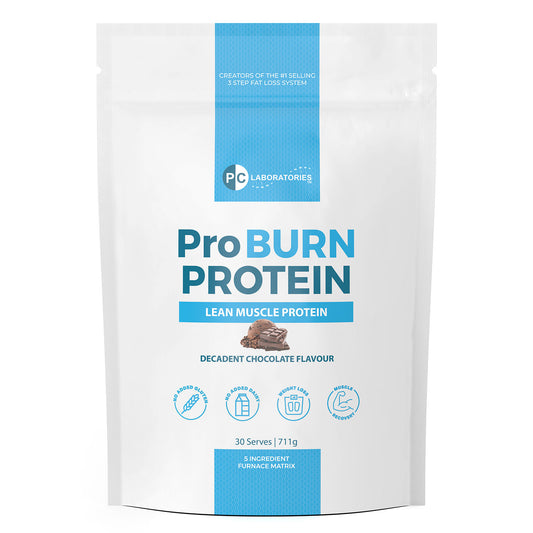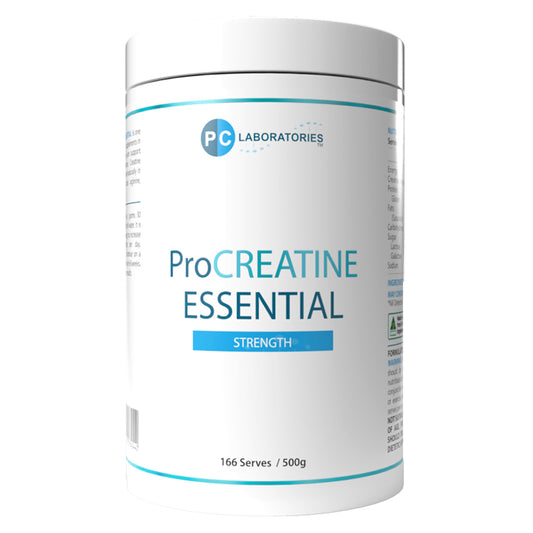Hydration plays a fundamental role in maintaining overall health and well-being, yet its impact on weight loss and muscle performance is often overlooked. Water is essential for nearly every physiological process, including metabolism, thermoregulation, and nutrient transportation. Despite its significance, many individuals fail to consume adequate amounts of water, potentially hindering their fitness progress and overall physical performance.
The relationship between hydration and weight loss is particularly noteworthy. Proper water intake has been shown to enhance metabolic efficiency, aid in appetite regulation, and facilitate the breakdown of fat. Conversely, dehydration can lead to metabolic slowdown, increased caloric intake due to misinterpreted thirst signals, and diminished energy levels, all of which can impede weight loss efforts.
Similarly, hydration is crucial for muscle function, endurance, and recovery. Water is necessary for optimal muscle contraction, joint lubrication, and the transportation of nutrients essential for muscle repair. Dehydration, even at mild levels, can result in reduced strength, early onset of fatigue, and prolonged muscle soreness post-exercise. For athletes and individuals engaged in regular physical activity, maintaining proper hydration is imperative to maximize performance and expedite recovery.
This article explores the critical role of hydration in weight loss and muscle performance, providing evidence-based insights into its physiological effects. Additionally, it offers practical hydration strategies to optimize both metabolic function and athletic performance. Understanding these principles can enable individuals to make informed decisions about their water intake, ultimately enhancing their fitness outcomes.
Why Hydration is Crucial for Weight Loss
Water is a vital component of numerous physiological functions, many of which directly influence weight management. Proper hydration plays a key role in regulating metabolism, controlling appetite, and facilitating the breakdown of fat. Insufficient water intake can hinder these processes, leading to decreased energy expenditure and inefficient fat metabolism. This section explores the mechanisms by which hydration supports weight loss and the potential consequences of dehydration.
Water’s Role in Boosting Metabolism
Metabolism refers to the biochemical processes that convert food into energy, and hydration is essential for its efficiency. Research indicates that drinking water can temporarily increase metabolic rate, a phenomenon known as water-induced thermogenesis. A study published in The Journal of Clinical Endocrinology & Metabolism found that consuming 500 mL of water led to a 30% increase in metabolic rate for approximately 30–40 minutes (Boschmann et al., 2003). This increase in energy expenditure contributes to greater calorie burning, supporting weight loss efforts.
Moreover, dehydration has been linked to a decline in metabolic efficiency. When the body is dehydrated, it struggles to maintain optimal enzymatic activity, slowing down metabolic processes. This inefficiency can result in reduced fat oxidation, making it more challenging for individuals to lose weight. Maintaining adequate hydration levels ensures that metabolic reactions proceed efficiently, promoting steady and sustainable weight loss.
Water’s Effect on Appetite Control
Hydration also plays a critical role in appetite regulation. The body's signals for thirst and hunger are closely linked, and dehydration can sometimes be misinterpreted as hunger, leading to unnecessary calorie consumption. Studies have demonstrated that drinking water before meals can reduce overall calorie intake. One study conducted by Dennis et al. (2010) in Obesity found that individuals who consumed 500 mL of water before meals reduced their caloric intake and experienced greater weight loss over 12 weeks compared to those who did not.
The mechanism behind this effect is twofold. First, consuming water before eating increases gastric distension, which sends signals to the brain indicating satiety, thereby reducing food intake. Second, water consumption helps regulate ghrelin, the hormone responsible for stimulating hunger. By ensuring proper hydration, individuals may experience fewer cravings and reduced calorie consumption, facilitating weight management.
Hydration and Fat Breakdown
Beyond metabolism and appetite control, hydration is essential for lipolysis, the process by which stored fat is broken down for energy. Water acts as a medium for various biochemical reactions involved in fat metabolism. Specifically, hydrolysis, a process that requires water, enables the breakdown of triglycerides into glycerol and free fatty acids, which are then utilized for energy production.
Dehydration can significantly hinder this process. A lack of water reduces the efficiency of metabolic reactions, slowing down the utilization of fat stores. Additionally, dehydration can lead to increased water retention, which may cause bloating and fluctuations in body weight, potentially masking true fat loss. By maintaining proper hydration levels, individuals can ensure that their bodies efficiently metabolize fat, enhancing their weight loss progress.
Hydration’s Impact on Muscle Performance and Recovery
Hydration is a fundamental factor in athletic performance and muscle function. Water is essential for maintaining cellular integrity, regulating body temperature, and ensuring the proper transport of oxygen and nutrients to muscle tissues. Dehydration, even at mild levels, can significantly impair muscular endurance, strength, and recovery. This section examines the role of hydration in muscle function, the impact of electrolytes on performance, and the importance of water intake for post-exercise recovery.
Muscle Strength and Endurance
Muscles are composed of approximately 75% water, highlighting the crucial role hydration plays in muscle function (Sawka et al., 2005). Water is necessary for optimal muscle contraction, as it supports the transmission of electrochemical signals between nerves and muscle fibers. Dehydration disrupts this process by reducing plasma volume, which impairs blood circulation and diminishes the delivery of oxygen and nutrients to working muscles. Consequently, individuals who exercise in a dehydrated state often experience early onset of fatigue, decreased power output, and reduced muscular endurance.
Empirical evidence underscores the impact of hydration on strength performance. A study published in The Journal of Strength and Conditioning Research found that dehydration levels as low as 2% of body weight resulted in significant declines in muscle strength, endurance, and anaerobic performance (Judelson et al., 2007). These findings emphasize the necessity of maintaining adequate hydration, particularly for athletes and individuals engaging in resistance training or prolonged physical activity.
Electrolytes and Muscle Function
Electrolytes, including sodium, potassium, calcium, and magnesium, are essential for maintaining fluid balance and enabling proper muscle contractions. These minerals regulate nerve impulses and facilitate the exchange of ions across muscle cell membranes, allowing for coordinated and sustained contractions.
During exercise, electrolytes are lost through sweat, and failure to replenish them can lead to muscle cramps, weakness, and impaired neuromuscular function. In severe cases, an imbalance in sodium levels can result in hyponatremia, a condition characterized by confusion, nausea, and even life-threatening complications.
The choice between water and sports drinks for hydration depends on exercise intensity and duration. For workouts lasting less than 60 minutes, water is generally sufficient to maintain hydration. However, for prolonged or high-intensity activities, electrolyte-containing beverages may be beneficial to restore mineral balance and sustain performance. The American College of Sports Medicine (ACSM) recommends consuming beverages with sodium (0.5–0.7 g/L) and carbohydrates (6–8%) for endurance athletes to optimize hydration and energy levels (Sawka et al., 2007).
Hydration for Faster Muscle Recovery
Post-exercise hydration is crucial for reducing muscle soreness and promoting recovery. Water plays a key role in flushing out metabolic byproducts such as lactic acid, which accumulate in muscle tissues during strenuous activity. Proper hydration also facilitates protein synthesis, the process by which muscles repair and grow after exercise.
Dehydration can prolong recovery time by inhibiting circulation, thereby delaying the delivery of oxygen and nutrients required for muscle repair. Additionally, inadequate fluid intake exacerbates inflammation and oxidative stress, both of which contribute to muscle damage and delayed onset muscle soreness (DOMS). A study in The European Journal of Applied Physiology found that hydrated individuals experienced less post-exercise soreness and improved muscle function compared to those who were dehydrated (Cheung et al., 2003).
To optimize recovery, individuals should:
- Rehydrate immediately after exercise by consuming at least 1.5 liters of water per kilogram of body weight lost through sweat.
- Include electrolyte-rich foods or beverages to replenish lost minerals.
- Ensure consistent hydration throughout the day to maintain muscle elasticity and reduce stiffness.
How to Stay Hydrated for Optimal Performance
Given the significant role that hydration plays in metabolism, weight loss, and muscle performance, maintaining adequate water intake is essential. However, hydration needs vary based on factors such as individual physiology, activity level, and environmental conditions. This section explores the recommended daily water intake, best hydration strategies for athletes and physically active individuals, and key signs of dehydration to monitor.
How Much Water Should You Drink?
Determining the optimal daily water intake is complex, as individual hydration needs depend on various factors, including body weight, activity level, and climate. While the 8×8 rule (eight 8-ounce glasses of water per day) is a commonly cited guideline, it may not be sufficient for those engaging in regular exercise or living in warmer climates.
The National Academies of Sciences, Engineering, and Medicine (NASEM) recommends a daily fluid intake of approximately 3.7 liters (125 ounces) for men and 2.7 liters (91 ounces) for women, including water from food sources (NASEM, 2005). However, athletes and highly active individuals may require significantly more fluid, particularly if they engage in prolonged or intense physical activity.
For those focused on weight loss, drinking water before meals can be beneficial. A study published in Obesity found that participants who drank 500 mL of water before meals consumed fewer calories and lost more weight than those who did not (Dennis et al., 2010). This suggests that strategic hydration may enhance dietary adherence and portion control.
Best Hydration Strategies for Athletes and Gym-Goers
To optimize hydration for exercise performance and recovery, individuals should implement structured hydration strategies before, during, and after physical activity:
Pre-Exercise Hydration:
- Consume 500–600 mL (17–20 oz) of water 2–3 hours before exercise to ensure proper fluid balance.
- Drink 250–300 mL (8–10 oz) of water 20–30 minutes before starting exercise to maintain hydration levels.
During Exercise Hydration:
- For workouts under 60 minutes, drink 150–250 mL (5–8 oz) every 15–20 minutes.
- For prolonged or high-intensity workouts exceeding 60 minutes, incorporate electrolyte-rich beverages to replace lost sodium, potassium, and other essential minerals.
- Avoid excessive water intake, as overhydration can lead to hyponatremia, a condition caused by diluted sodium levels in the blood, leading to confusion, nausea, and, in severe cases, life-threatening complications.
Post-Exercise Hydration:
- Rehydrate with 1.5 liters of fluid per kilogram of body weight lost through sweat to restore fluid balance.
- Include sodium-rich foods or beverages to enhance water retention and prevent dehydration-related fatigue.
- Monitor urine color as a general indicator of hydration status—pale yellow suggests adequate hydration, while dark yellow or amber may indicate dehydration.
By following these hydration protocols, individuals can maintain fluid balance, sustain performance levels, and promote faster recovery.
Signs of Dehydration to Watch Out For
Recognizing early signs of dehydration is crucial for preventing its negative effects on metabolism, weight loss, and muscle performance. Common symptoms of dehydration include:
Mild to Moderate Dehydration:
- Dry mouth and increased thirst
- Fatigue and reduced exercise performance
- Dizziness and headaches
- Dark-colored urine and infrequent urination
Severe Dehydration:
- Rapid heartbeat and low blood pressure
- Muscle cramps and weakness
- Confusion or difficulty concentrating
- Heat exhaustion or heat stroke in extreme cases
Individuals who experience chronic dehydration may also suffer from slower metabolism, decreased ability to burn fat, and prolonged muscle soreness after exercise. To prevent dehydration, it is essential to drink water consistently throughout the day rather than consuming large amounts sporadically.
Optimizing Performance and Weight Loss: The Essential Role of Hydration in Muscle Function and Metabolism
Hydration plays a critical role in supporting key physiological functions that influence both weight management and muscle performance. Adequate water intake enhances metabolic efficiency, facilitates fat oxidation, and aids in appetite regulation, making it an essential factor in weight loss. Additionally, proper hydration is fundamental for muscle contraction, endurance, and post-exercise recovery, helping to prevent fatigue, cramps, and delayed muscle repair.
Scientific research underscores the importance of maintaining fluid balance to optimize physical performance and overall well-being. Dehydration, even at mild levels, can impair metabolism, reduce exercise capacity, and hinder recovery, ultimately diminishing both weight loss efforts and athletic progress. Furthermore, electrolyte balance must be considered, particularly for those engaging in prolonged or high-intensity activities, as inadequate replenishment can negatively impact neuromuscular function.
To maximize the benefits of hydration, individuals should adopt evidence-based strategies, including consuming adequate water throughout the day, timing fluid intake around meals and exercise, and monitoring hydration status through physiological indicators such as urine color and thirst cues. By prioritizing proper hydration as an integral part of their fitness regimen, individuals can enhance their ability to achieve sustainable weight loss and improve muscle function, endurance, and recovery.
Future research should continue to explore individualized hydration strategies, particularly in relation to specific dietary patterns, training intensities, and environmental conditions. Nevertheless, the existing evidence strongly supports the notion that hydration is a fundamental yet often underestimated component of both metabolic health and physical performance.








